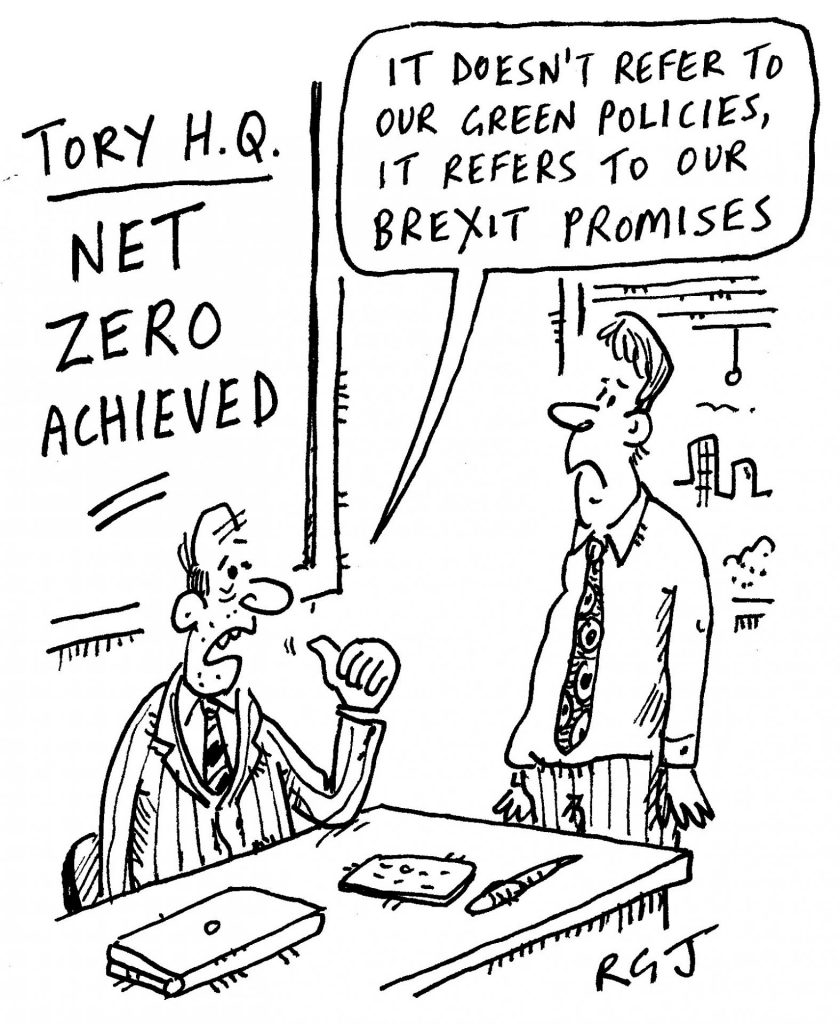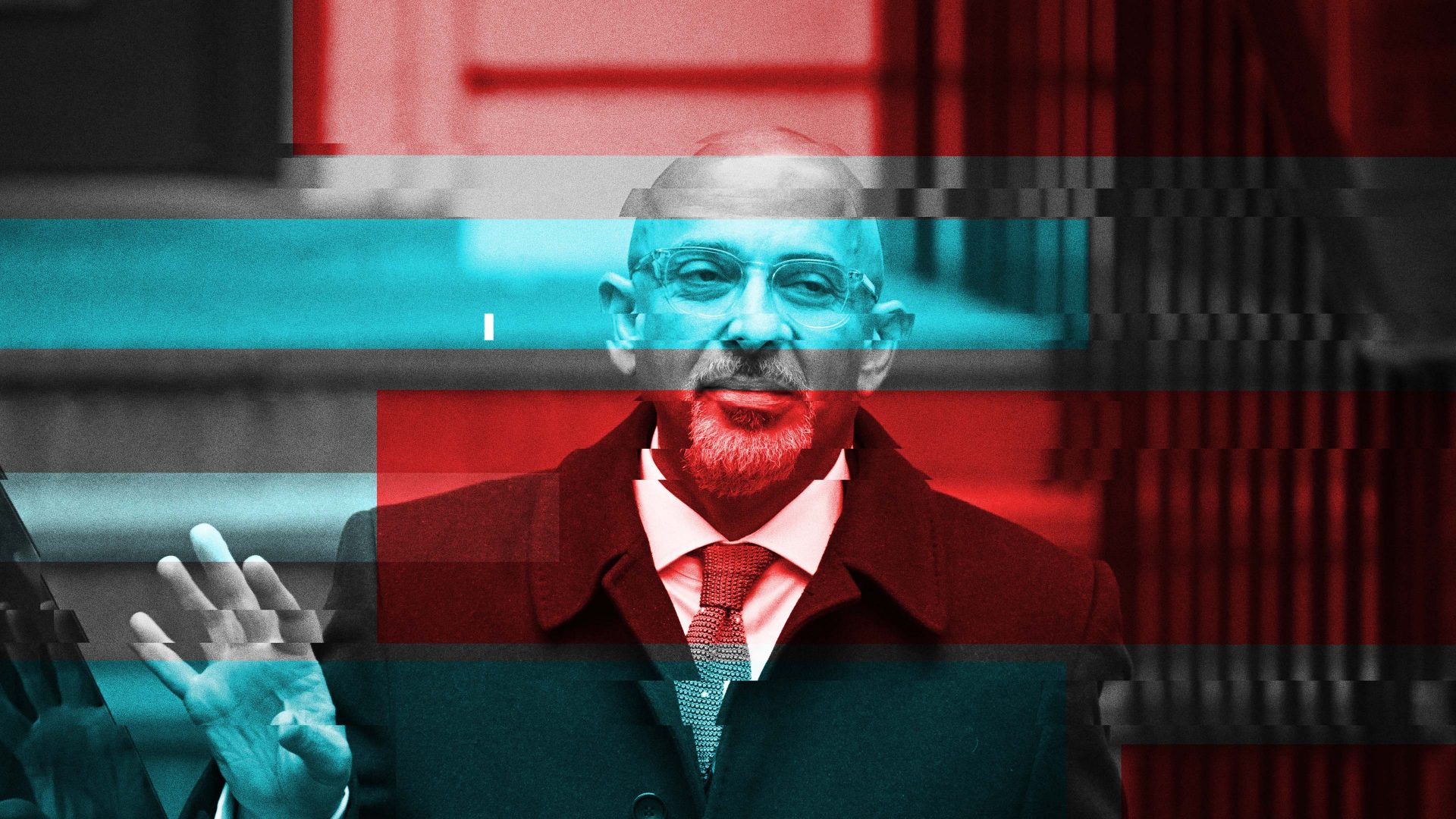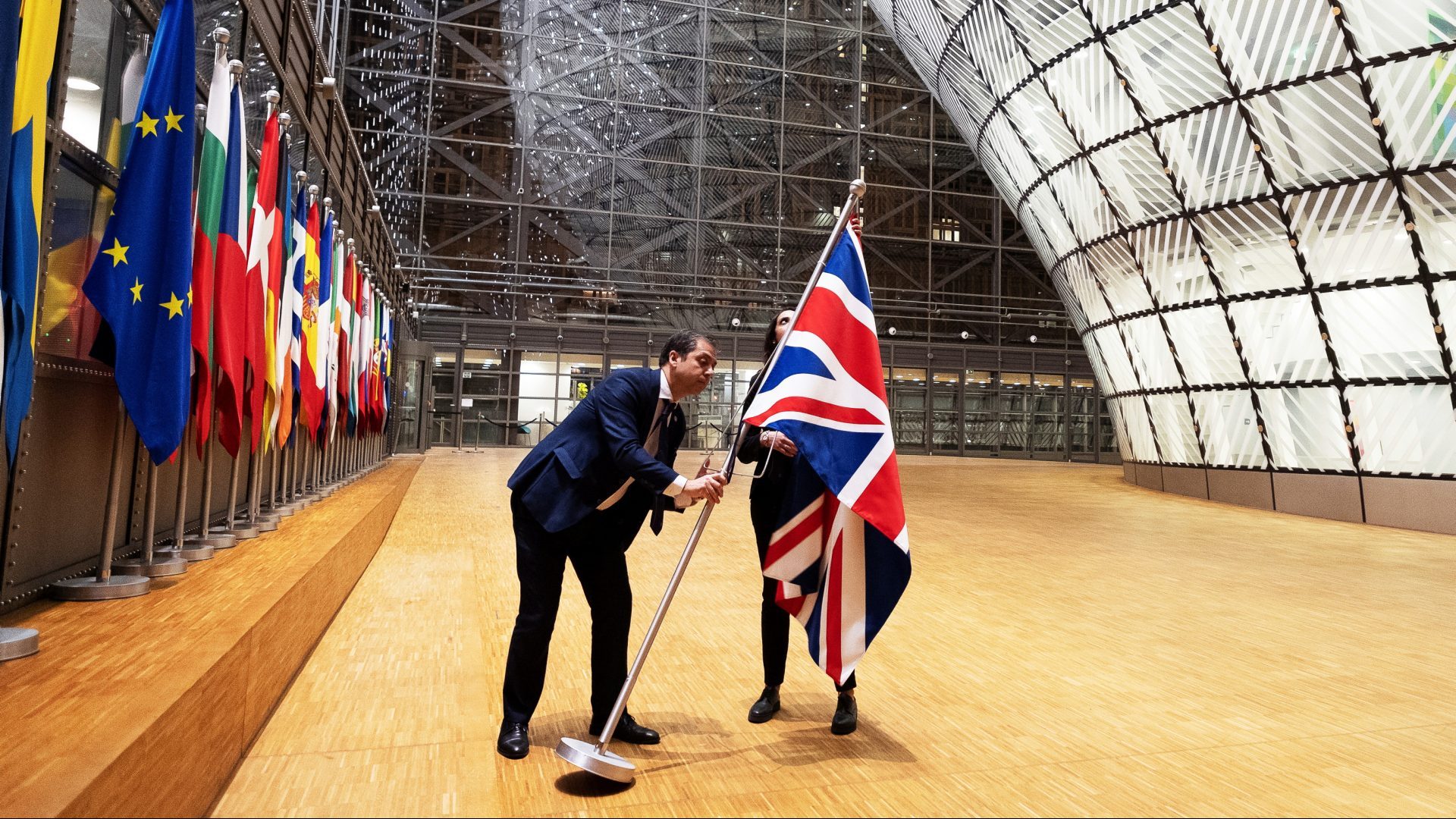So farewell Nadhim Zahawi, your tax dodging and your lying eventually did for you, and only your party and your leader’s lack of a moral compass kept you there for those last weeks before the inevitable happened. I wonder if Richie Rishi will learn from this.
Asked for my advice to Sunak in a BBC interview almost two weeks before the axe finally fell, I said: “Work out where you think it will end, and get there first.” He didn’t. So he ends up with the worst of all worlds – all the damage done by his defence of the totally indefensible, and his hiding behind “wait for the inquiry,” which lost him political capital and authority, and none of the credit he hoped to recoup by sacking him.
Anyone get the feeling that we might have another one on our hands, who simply isn’t up to the job of leading his rancid party, let alone a country crying out for some decent leadership?

My God, doesn’t time fly when your country is falling to bits? … is it really a whole year since I recorded how moved I was at a fundraising lunch for the Anne Frank Trust? Indeed, so moved was I that I wrote about it not only here but also in my – finally – just finished next book, But What Can I Do?, a call to arms to resist disengaging from politics and instead get more involved in saving it from the degradation the Tories have inflicted?
Anne Frank figures in a chapter aimed at debunking the cynical notion that “ordinary people” cannot make a difference. I highlighted not just Anne, whose story is so well known, but the woman whose caring and courage helped bring her diary to the attention of the world, Miep Gies, who died in 2010 aged 100. Don’t let anyone tell you that the good all die young.
There were several memorable elements at last week’s event at the Park Lane Hilton in London. On the deeply dispiriting side, new figures were published showing a steady rise in hate crime, with the biggest rise related to antisemitic hate. David Baddiel, whose Jews Don’t Count is currently third in line in my pile of bedside books, gave a compelling analysis of what he called “casual antisemitism, the racism that slips by you.”
A Chelsea supporter, he illustrated it with his accounts of stewards at football matches doing nothing when Spurs fans are taunted with the Y-word. He said he wasn’t blaming the stewards. They knew it was part of their job to deal with racist abuse inside a stadium. “They just don’t realise this is racism.”
The highlight for me though was three groups of schoolchildren from different parts of the country taking to the stage to read poems addressed directly to Anne Frank, thanking her and explaining how she inspires them today.
In her diary, Anne wrote that “I want to go on living even after my death.” Dead by the age of 16, one of the six million killed by the Nazis, it’s fair to say she achieved that ambition. That she did so without ever knowing she would makes her legacy all the more powerful.
David Baddiel also talked of how casual antisemitism creeps into comedy. He told of the time he and two non-Jewish comedians were at a Jewish comedy festival and his colleagues’ jokes were all about Jews and money. Not appropriate. A trope.
As to what might be an appropriate joke about Jews, he told one. “It’s a hot day and an Englishman, a Frenchman and a Jew walk into a bar. The Englishman says ‘I am so thirsty… I must have a beer.’ The Frenchman says ‘I am so thirsty… I must have some wine.’ The Jew says ‘I am so thirsty… I must have diabetes.’”
Mean Jew jokes. Not funny. Hypochondriac Jew jokes… fine. OK?
Joining the Holocaust survivors and victims of antisemitic violence who lit candles at the start of the lunch was a woman who is not a Jew, but who was there to highlight that genocide is an ongoing challenge.
Rahima Mahmut is an exiled Uyghur who campaigns against the genocide being inflicted on her people by the Chinese authorities. She has had no contact with her family back home for several years, and has no idea where they are, or even whether they are alive or dead. And she told me she could not contact them because Chinese voice recognition technology would immediately put those she spoke to in peril.
She is also a musician. As you might expect, a lot of her songs are about loss and separation and, having met her on the day when Scots around the world celebrate Robert Burns, I shared with her Ae Fond Kiss. (The poem, that is, not an actual fond kiss.) But don’t be surprised if I get her on to The Rest Is Politics podcast. The Uyghur story is one that simply does not get the attention it should.
Talking of stories that don’t get the attention they should, what has happened to our country, its politics and its media, that we appear to be so violently indifferent to the fate of children being kidnapped and trafficked out of a south coast hotel where the government is supposed to be in charge of their safety?
Labour MP Peter Kyle made a powerful speech in the Commons calling this out for what it is. The government response has been woeful at best, downright cruel at worst.
All good for home secretary Suella Braverman, though. Her inaction and indifference appeal to the base. Base being the operative word. Braverman spoke of the “stain against humanity” represented by Nazism in a social media post for Holocaust Memorial Day. The responses were not pretty.
I hope she finds time in her busy schedule to watch The Swimmers, the Netflix film about Syrian refugees featured in Eurofile last week. I watched it on the back of reading Suna Erdem’s article and came away feeling distressed but also uplifted, and angry at those who demonise refugees in the way that Braverman and so many others in her party and its media supporters do.
Presenting awards at a business dinner, I took the opportunity to do one of my show-of-hands focus groups among the several hundred guests. I asked them if the economy was doing well or badly. 100% badly. How about Brexit? Going well or badly? One hand was raised for well. So 99.somethingorother% for badly.
This has become something of a pattern, whatever and wherever the audience. Schools and colleges. Businesses and charities. The chasm between public opinion and the reality-denying stance of the government, and the “make Brexit work” stance of the opposition, is growing.
I did a live BBC debate on Brexit this week with Jacob Rees-Mogg continuing to defend it (Brexit that is, not the BBC). I don’t think he had to fight off too many of his colleagues to get the gig.
Last week was a bad week for the Beeb, and indeed for Britain, with major cuts to the BBC World Service implemented, leading to the loss of hundreds of jobs, and the ending of radio output in a number of languages, among them Chinese, Hindi and Arabic. The cuts to the Persian service also mean that people in Iran looking for honest coverage about the protests for women’s rights might now struggle to find it.
But this also has a further impact on Britain’s soft power, because despite the BBC further damaging its own reputation at home when its Tory-donating chairman helps a corrupt and corrupting prime minister sort out his debts, its reputation in many parts of the world remains strong.
Asked in an interview on Al-Jazeera why the government didn’t step in to protect these services, I pointed out that the government was the cause of them. George Osborne’s austerity, subsequent licence-fee freezes, and the political agenda against the BBC got us to where we are.
And a government that is willing to overlook the damage done to soft power by our departure from the European Union is unlikely to be too fussed about foreigners in faraway places no longer being able to access fair and objective analysis of their own countries.




